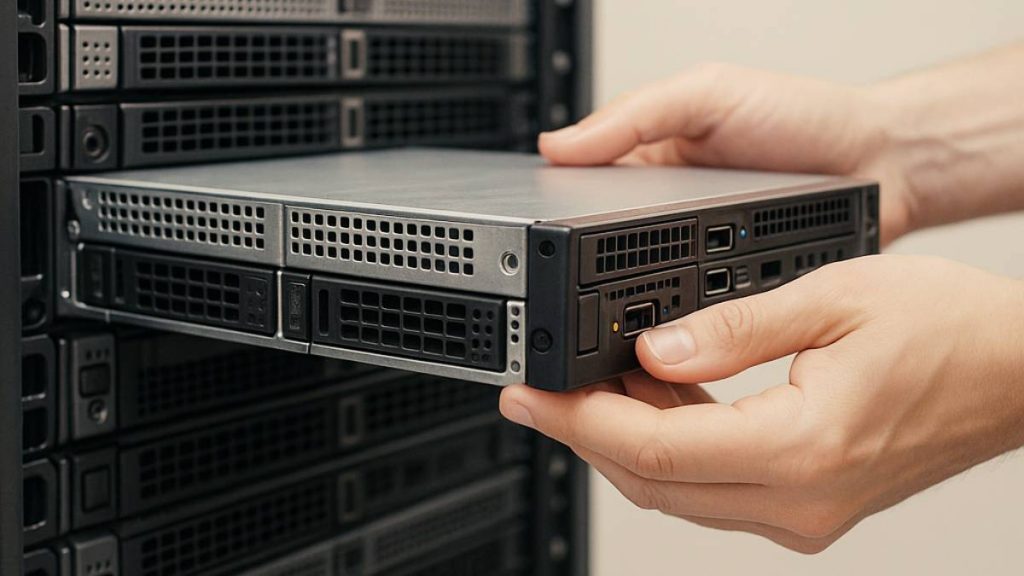Introduction
In today’s digital landscape, where data drives decision-making and operational efficiency, understanding data center support services is crucial for any organization striving to maintain a competitive edge. Data center support services encompass a variety of essential functions that help ensure the smooth operation, uptime, and reliability of IT infrastructure. From routine maintenance to emergency response, these services are designed to minimize downtime and mitigate risks associated with system failures. The impact of effective support services cannot be overstated; research shows that even a few minutes of downtime can cost businesses thousands of dollars in lost revenue and reputational damage.

Uptime and reliability are not merely technical benchmarks but vital components that influence overall business performance. With increasing reliance on cloud computing, e-commerce platforms, and data-intensive applications, companies must prioritize robust support structures within their data centers to safeguard against disruptions. A well-managed data center ensures that critical operations remain uninterrupted while facilitating seamless workflows among IT teams. As you navigate this article, you will uncover how these indispensable support services function as the backbone of business continuity strategies.
Overview of Data Center Support Services
Data center support services encompass a variety of essential functions designed to ensure the reliability and efficiency of data center operations. The primary types of services offered include remote hands, monitoring, and emergency response, each playing a pivotal role in maintaining optimal performance while mitigating potential risks. By providing specialized support tailored to individual business needs, these services help organizations navigate the complexities involved in data management and IT infrastructure.
Remote hands services facilitate troubleshooting and equipment maintenance without requiring the client to be onsite. This service includes tasks such as hardware installations, cable management, and system reboots performed by trained personnel who act on behalf of clients. For instance, when a company experiences server issues during off-hours or weekends, remote hands can quickly perform necessary actions to significantly reduce downtime. This service enhances operational efficiency and enables businesses to allocate their resources more effectively, conserving valuable time and reducing costs associated with unplanned disruptions.
Monitoring services are another cornerstone of effective data center support. These services involve continuous oversight of system health checks and performance metrics through advanced tools that track everything from bandwidth usage to temperature levels within server rooms. Real-time insights obtained from monitoring enable IT teams to identify and address potential issues before they escalate into major problems. For example, if abnormal fluctuations in power consumption are detected, immediate action can be taken to rectify the situation—ultimately preventing costly outages. This proactive approach promotes risk management by safeguarding against scenarios that could adversely impact service availability.
Emergency response services bolster data centers’ operational resilience by providing structured protocols for handling unforeseen crises like power outages or hardware failures. A well-implemented emergency response plan enables swift actions tailored to specific incidents—such as automatically rerouting or relocating resources—which minimizes impact on business continuity efforts. By incorporating these diverse support offerings into their operational blueprint, businesses position themselves for current demands and future challenges in an increasingly dynamic technological landscape.
Remote Hands Services
Remote hands and professional services are crucial to data center operations. They provide physical assistance across various tasks without requiring onsite client personnel. These services typically include equipment installation, troubleshooting, reboots, and hardware replacements. Organizations can significantly extend their operational capabilities by utilizing remote hands while minimizing the need for dedicated in-house technical staff. This allows businesses to remain flexible and ensures that complex tasks are handled by trained professionals familiar with the facility’s environment.
One of the primary benefits of remote hands services is their contribution to reducing downtime, which has direct implications for business continuity. For instance, in scenarios where a server experiences an unexpected failure during peak operating hours, having access to remote hands can expedite diagnosis and resolution processes.
Cost-effectiveness also plays a vital role in justifying investment in remote hands services. Businesses may face substantial costs related to extended outages—potentially losing thousands of dollars for every hour of downtime. By leveraging these services, companies can mitigate risks associated with unanticipated failures and avoid excess expenditures on emergency technician dispatches and repairs. Moreover, these services can help ensure routine maintenance tasks are completed efficiently without necessitating full-time employees solely devoted to onsite procedures.
Monitoring Services
Monitoring services are a critical component of data center support, designed to ensure an IT infrastructure’s optimal performance and reliability. These services encompass a range of activities including system health checks, performance metrics tracking, and various diagnostic assessments. By continuously monitoring systems for performance anomalies, clients can maintain operational efficiency and mitigate potential disruptions before they escalate into significant issues. For instance, software tools that monitor server loads and application latency enable IT managers to identify resource bottlenecks in real time.
Real-time insights empower organizations to engage in proactive issue resolution rather than reactive firefighting. For example, by utilizing monitoring dashboards, operators can view key metrics such as CPU usage, memory consumption, and network throughput at a glance. If an unusual spike in traffic is detected, alerts can be triggered immediately to prompt investigation or resource scaling. This proactive approach minimizes downtime and enhances overall service quality for end-users.
Monitoring services in data centers extend beyond simple surveillance; they establish a foundational layer for strategic decision-making regarding IT management, turning potential crises into manageable challenges while driving higher levels of efficiency across their operations.
Emergency Response Services
Emergency response services are a critical element of data center operations, designed to address unforeseen incidents that may disrupt normal functioning. A robust emergency response plan typically encompasses several key components, including risk assessments, incident management protocols, communication strategies, and recovery procedures. These elements work harmoniously to minimize the impact of emergencies on business continuity while restoring operational efficiency as quickly as possible. Predefined workflows can detail how staff should react in various situations—whether they involve technical failures or physical threats like natural disasters.
The presence of a dedicated support team during crises ensures that appropriate actions are taken swiftly and efficiently to manage the situation at hand. Having a knowledgeable team familiar with both the infrastructure and the potential vulnerabilities significantly enhances recovery outcomes. Moreover, communication is vital throughout this process; timely updates about issues and resolutions can alleviate concerns among stakeholders while fostering trust in the organization’s ability to navigate emergencies effectively.
Benefits of Comprehensive Support Services
Comprehensive support services are vital in enhancing overall service availability within data centers. When businesses partner with robust support providers, they enable constant monitoring and rapid intervention for issues before they escalate into significant problems. For instance, a data center equipped with around-the-clock support can address hardware failures promptly, minimizing the risk of system outages that could affect customer transactions or critical operations.
Additionally, these support services play a crucial role in business continuity and disaster recovery planning. In today’s unpredictable business landscape, companies must prepare for various disruptions—ranging from natural disasters to cyber-attacks. A well-structured support service can ensure that contingency plans are in place and function effectively during emergencies. For example, when an unexpected power outage occurs, firms with robust emergency response protocols can quickly switch to backup systems and initiate failover procedures seamlessly, thereby ensuring minimal business interruption.
Cost efficiency is another substantial benefit related to comprehensive support services. Downtime can be one of the most costly factors for any organization; reports estimate that every minute of downtime may cost businesses thousands of dollars depending on their industry. Organizations can significantly reduce planned and unplanned downtimes by engaging in efficient incident management through reliable support services. This approach not only saves direct costs associated with loss of sales but also preserves brand reputation and customer loyalty that could be jeopardized during extended outages.
Ultimately, leveraging comprehensive data center support services translates into enhanced operational resilience and financial prudence for organizations looking to thrive in a competitive marketplace.
Choosing the Right Support Service Provider
When selecting a data center support service provider, several key factors warrant consideration to ensure alignment with your business’s needs. First and foremost, evaluate the range of services offered by potential providers. A comprehensive suite of options—ranging from remote hands and monitoring to emergency response—is crucial for effective operational support. It enables businesses to address diverse scenarios and challenges that may arise within the data center environment. For instance, if your enterprise heavily relies on cloud computing, verifying that a provider specializes in cloud support services can be essential for maintaining optimal performance and minimizing downtime.
Certifications and compliance with industry standards are significant indicators of a provider’s credibility and capability. Providers should possess certifications such as Service Organization Control (SOC), ISO 27001, or Payment Card Industry Data Security Standard (PCI DSS), as these reflect adherence to established best practices in security and operational efficiency. Prioritizing providers who maintain these certifications mitigates risk and enhances your organization’s reputation through aligned best practices.
In addition to compliance, assessing responsiveness is vital during the decision-making process. A reliable provider should demonstrate quick communication efforts, especially when addressing urgent issues or inquiries. Businesses often face unexpected challenges; thus, knowing that your support team will promptly respond can alleviate stress during those critical moments. Furthermore, examining client testimonials can provide valuable insights into a provider’s expertise and overall satisfaction levels among existing customers. Engage with case studies or references related to similar projects or sectors where the potential provider excelled—this firsthand knowledge serves as an excellent gauge for determining suitability.
Ultimately, choosing the right data center support service provider requires careful consideration of various factors ranging from service breadth and industry credentials to responsiveness and past customer experiences. Fostering strong partnerships with dependable providers ensures you have the necessary resources at hand not only for routine operations but also during unforeseen events requiring immediate attention.
Preparing Your Business for Data Center Support Services
To effectively engage with data center support services, businesses must first conduct a thorough assessment of their current operational needs and identify potential gaps in their IT infrastructure. This proactive analysis should encompass the immediate requirements and anticipated future developments as technology evolves and business demands change. For instance, a growing e-commerce company may notice an increase in website traffic during peak seasons, necessitating a review of its server capabilities and backup systems to ensure uninterrupted service availability. Organizations can regularly evaluate these aspects to align their support service strategies with real-world challenges.
Once a clear understanding of needs has been established, developing a framework for collaboration with support service providers becomes essential. This involves identifying key criteria for selection, such as scalability options and specific service offerings that match the organization’s goals. Furthermore, establishing Service Level Agreements (SLAs) that outline expectations for response times and uptime guarantees is crucial in ensuring accountability on both sides.
Communication channels play a vital role in maintaining effective partnerships between IT teams and support vendors. Clear communication fosters transparency regarding ongoing issues, performance metrics, and any changes in organizational needs over time. Regular check-ins between technical staff allow for quick escalation of issues and foster trust among stakeholders. Moreover, utilizing project management tools that enable shared visibility into tasks can significantly improve coordination while reducing misunderstandings about expectations or timelines. By investing time in cultivating these communication practices now, businesses position themselves to maximize the benefits derived from data center support services as they navigate the complexities of today’s digital landscape.
Ultimately, preparing your business for data center support services requires dedicated effort toward understanding internal operations and external partnerships. By taking these proactive steps—the comprehensive assessment of needs, creation of an engagement framework with providers, and maintenance of robust communication—organizations can achieve heightened operational resilience and maintain the competitive edge required in increasingly demanding markets.
Future Trends in Data Center Support Services
As organizations adapt to the rapid pace of technological advancement, emerging technologies such as artificial intelligence (AI) and automation are becoming increasingly integral to data center support services. AI is enhancing the accuracy and efficiency of monitoring systems by analyzing vast amounts of performance data in real time. This capability allows for predictive maintenance—identifying and addressing potential issues before they escalate into significant failures.
Furthermore, automation is streamlining various operational tasks within data centers, from routine system checks to configuration management. By reducing human intervention, organizations can minimize errors while freeing up skilled personnel to focus on more strategic initiatives. A notable example is automated incident response systems that utilize machine learning algorithms to resolve common problems independently. Such implementations lead to improved uptime and enable data centers to handle evolving workloads without compromising service quality.
In tandem with technological advancements, there is a growing emphasis on sustainability practices within support service offerings. As businesses strive to reduce their carbon footprint, many data center providers are adopting green technologies such as energy-efficient cooling systems and sustainable power sources like solar or wind energy. Additionally, organizations are beginning to see value in eco-friendly data handling; for instance, some companies are prioritizing the use of recycled materials for hardware upgrades and employing energy management software that optimizes power consumption based on demand. These sustainability initiatives address environmental concerns and can yield financial benefits through lower operating costs.
Looking ahead, it is evident that the demands placed on data center support services will continue to evolve. Organizations are increasingly seeking flexible service delivery models capable of scaling alongside business growth while meeting dynamic market requirements. The integration of new technologies along with best practices in sustainability will not only facilitate resilience against disruptions but will also provide a competitive edge in an ever-changing landscape. By staying informed about these trends and proactively adapting strategies accordingly, IT managers and business owners can ensure preparedness for future challenges in the realm of data center support services.
Conclusion
A solid understanding of data center support services enhances business preparedness in today’s dynamic technological landscape. These services are not merely supplementary resources; they form the backbone of operational continuity and risk mitigation strategies essential for any organization reliant on digital infrastructure. With the potential for unanticipated disruptions impacting uptime and service reliability, organizations must prioritize comprehensive support service planning to ensure seamless operations.
To maximize operational resilience, IT managers, business owners, and data center operators must remain informed about available options and emerging trends in support services. Continuous engagement with reliable service providers drives performance improvements and sets a foundation for effective incident management and recovery planning. By proactively embracing these insights and partnerships, businesses can safeguard their infrastructure against future uncertainties, ensuring sustained success in an increasingly competitive marketplace.







